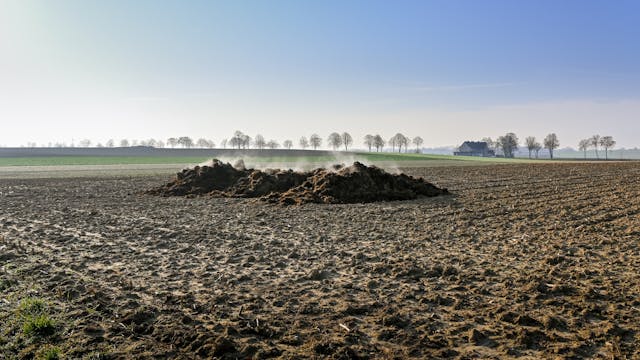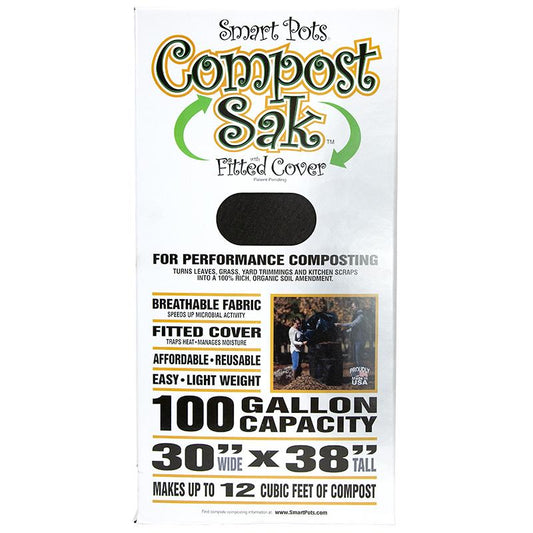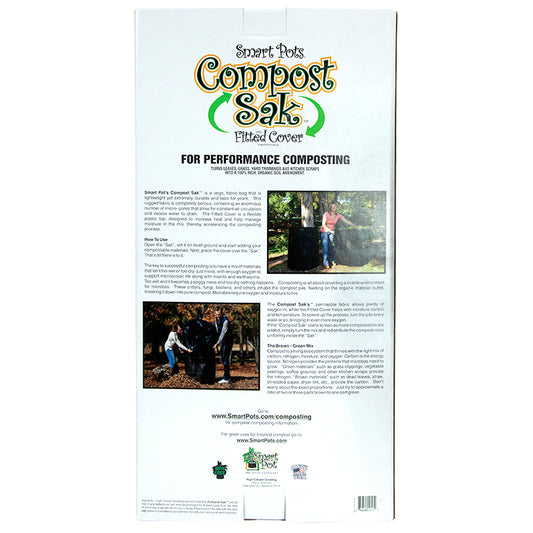Understanding Sheep Manure NPK, Horse Manure vs Cow Manure, and More: An Introduction to Organic Manure
What is Organic Manure?
Organic manure is nutrient-rich material derived from decomposed animal waste, plant matter, and other natural sources that improves soil fertility and supports healthy plant growth. Each type of manure offers unique benefits—cow manure enhances soil structure, while horse manure provides better aeration and drainage. Comparing horse manure vs cow manure helps you choose the best option for your soil’s needs.
For example, garden sheep manure is prized for being low in odor and easy to apply, while sheep manure NPK levels provide a balanced nutrient boost for a wide range of crops. Proper composting is essential, not only to reduce pathogens but also to preserve nutrient value—especially nitrogen, which is vital in early spring applications.
To further enhance your soil, consider brewing compost tea or reviewing our guide on soil pH for better nutrient absorption.
Why Consider Organic Manure for Your Garden or Farm?
Choosing organic manure is a smart step toward long-term soil health and sustainability. Whether you’re deciding between horse manure vs cow manure or evaluating the benefits of sheep manure NPK, organic options offer slow-release nutrients, improve soil texture, and support beneficial microbial life.
Manures like garden sheep manure are especially useful for vegetable beds and flower gardens due to their mild, balanced composition. Applying properly composted animal manure also reduces the risk of introducing weed seeds and harmful pathogens to your garden.
Organic manure isn’t just for fertilization—it can also be used to turn a cold frame into a hotbed, creating a warm environment to jumpstart early-season growth. Learn more ways to boost your blooms with organic fertilizers and grow a thriving, productive garden.

Types of Organic Manure
Each type of animal manure has unique benefits, nutrient levels, and application techniques. Here's a breakdown to help you choose the right natural fertilizer for your soil needs:
-
Horse Manure
- Light and fibrous, horse manure improves soil aeration and breaks down quickly. Though horse manure NPK values are moderate, it’s excellent for loosening heavy soils and must be composted to avoid introducing weed seeds. If you're managing pastures, check out our Premium Horse Pasture Mix (Irrigation) to support soil health naturally.
-
Cow Manure
- Dense and moisture-retentive, cow manure is ideal for improving soil structure and boosting organic matter. It's generally lower in nitrogen than poultry manure but is safe for most plants and easy to compost.
-
Sheep Manure
- Pelletized and easy to handle, sheep manure provides a well-balanced nutrient profile and fast absorption. It's low in odor and a reliable choice for vegetable gardens, flowers, and trees.
-
Goat Manure
- Similar to sheep manure, goat manure is dry and nutrient-dense. It composts quickly and enhances soil without contributing excess moisture, making it great for raised beds and row crops.
-
Pig Manure
- Pig manure is high in nitrogen and phosphorus but must be composted thoroughly due to high salt levels and potential pathogens. Once cured, it’s excellent for nitrogen-deficient soil.
-
Chicken Poop
- Chicken poop is among the richest manures in nitrogen, making it a fantastic choice for heavy-feeding vegetables like corn and leafy greens. It should always be composted to prevent plant burn. Learn more in Chicken Manure: The Perfect Fertilizer for Your Vegetable Garden.
- Thinking of keeping chickens too? Don’t miss our 10 Tips for a Chicken-Friendly Garden for integrating poultry with your growing space.
-
Rabbit Poop
- Mild and pelletized, rabbit poop can often be applied directly to the garden without composting. It’s easy to handle and ideal for small-space or container gardening. If rabbits are unwelcome visitors instead, browse our rabbit repellents and deterrents.
- More Info: Want to fertilize fruit trees naturally? Read When and How to Fertilize Your Fruit Trees for timing and technique tips using composted manures.
Why Buy Organic Manure?
- Manure can vary up to 30% in nutrient values even within one species due to factors such as diet, life stage, management, and environmental differences.
- The biggest difference comes from diet: what goes in does come out. Livestock typically excrete 50% and as much as 90% of the nutrients they're fed.
- Buying organic manure ensures it is free from pesticides and herbicides that might have been in conventionally grown feeds.

Is Your Animal Manure "Hot"?
Aged manure has simply been piled up; over time, the nitrogen turns to a gaseous form and leaves the manure. This will turn a “hot” manure – one that would burn your plant roots if applied fresh – to a “cool” manure that is safe for your garden.
Composted Manure is Better
Composted manure has been heated by the composting process to kill pathogens such as E. coli, while at the same time culturing microbes that are good for your soil.
Comparing Different Types of Organic Manure
Nutrient Profiles: Which Manure is Rich in What?
Different types of manure offer varied nutrient profiles. Chicken manure is high in nitrogen, cow manure improves soil structure, and horse manure provides a balanced mix of nutrients.

Application Techniques and Best Practices
How to Prepare and Apply Manure Safely
Using animal manure in your garden or on your farm can significantly improve soil fertility. However, improper application may introduce pathogens, burn plants, or spread weeds. Follow these best practices to apply manure safely and effectively:
-
Compost Raw Manure First
- Raw manure—especially from chickens, pigs, and cows—can contain harmful pathogens such as E. coli and Salmonella.
- Composting at high temperatures (131–170°F) for several weeks kills most pathogens and weed seeds.
- Composting also stabilizes nutrients, making them more accessible to plants and reducing the risk of nutrient burn.
-
Understand the Carbon-to-Nitrogen Ratio (C:N)
- A balanced compost pile should maintain a C:N ratio of around 25–30:1.
- Add carbon-rich "brown" materials like dry leaves, straw, or wood shavings to high-nitrogen manures (e.g., chicken or horse manure) to encourage proper decomposition and minimize odor.
-
Time Your Application Wisely
- Apply composted manures (such as cow, sheep, or goat manure) in the fall or early spring, allowing nutrients to integrate before peak plant growth.
- Avoid applying manure close to harvest—especially on leafy greens or root crops—to reduce the risk of contamination.
-
Incorporate Manure Into the Soil
- Mix manure 6–8 inches deep into garden beds or planting rows to:
- Reduce odor
- Limit nitrogen loss
- Ensure nutrients reach plant roots
- Lightweight manures like rabbit or goat manure can be worked into the top layer of soil or added directly around plants.
- Mix manure 6–8 inches deep into garden beds or planting rows to:
-
Apply the Correct Amount
- Avoid over-application, which can cause:
- Nutrient runoff
- Soil pH imbalance
- Excessive salt buildup
- Use high-nitrogen manures (e.g., chicken manure) in moderation—and only after composting.
- Always follow soil test results and crop-specific nutrient recommendations.
- Avoid over-application, which can cause:
-
Avoid Using Raw Manure Near Edible Crops
- Do not apply raw manure near edible plants or their root zones.
- Follow USDA organic guidelines:
- Wait at least 90 days before harvest for crops not in contact with soil
- Wait 120 days before harvest for crops that do touch the soil
-
Mulch Over Manure When Possible
- Cover composted manure with mulch to:
- Retain soil moisture
- Suppress weeds
- Prevent nitrogen from escaping into the air (volatilization)
- Cover composted manure with mulch to:
-
Compost in a Dedicated Area
- Build your compost pile away from water sources to prevent contamination.
- Use a bin or protected area for composting manure and organic materials (e.g., kitchen scraps).
- Turn or aerate regularly to promote microbial activity and even decomposition.

Potential Issues and How to Address Them
Managing Common Challenges When Using Manure
While manure is a valuable soil amendment, improper use can cause problems. Here are typical issues and straightforward ways to handle them:
-
Strong Odors:
- Caused by fresh or insufficiently composted manure releasing ammonia. Use well-composted manure, incorporate it quickly into soil, and cover with mulch or soil to minimize smells.
-
Pathogen Risk:
- Raw manure may harbor harmful bacteria. Always compost manure at proper temperatures to ensure safety, and avoid applying raw manure near edible crops, especially those consumed raw. For convenience and peace of mind, consider using pre-composted, pathogen-safe options like those available from our Composted Animal Manures Collection.
-
Weed Seeds:
- Manure from animals that have eaten weeds can introduce seeds to your garden. Thorough composting at high temperatures helps destroy most seeds; sourcing manure responsibly is also important.
-
Nutrient Imbalance or Over-Application:
- Excessive manure can lead to nutrient runoff, salt buildup, and pH shifts. Conduct regular soil tests and follow crop-specific nutrient guidelines. Apply manure in moderation and rotate with other organic amendments.
-
Excessive Moisture or Waterlogging:
- Manure with high moisture may reduce soil aeration and harm roots. Use drier manures or compost manure to lower moisture content before applying. Ensure planting areas have adequate drainage.
-
Attracting Pests:
- Fresh manure can draw flies, rodents, and other pests. Avoid placing fresh manure near living spaces, compost thoroughly, and promptly cover manure with soil or mulch to reduce attraction.
- Fresh manure can draw flies, rodents, and other pests. Avoid placing fresh manure near living spaces, compost thoroughly, and promptly cover manure with soil or mulch to reduce attraction.
Conclusion
Choosing the right animal manure for your garden or farm involves understanding the unique benefits and challenges of each type. When choosing best poo, it's helpful to compare horse manure vs cow manure, as each offers different advantages in texture, nutrient availability, and application timing. For example, horse manure typically has a higher fiber content and breaks down faster, while cow manure is denser and excellent for improving soil structure.
Sheep manure NPK values are well-balanced, making it a versatile choice for most garden plants. It’s also low in odor and safe to use without extensive composting. Poultry manure has a very high nitrogen content, which is ideal for nitrogen-hungry crops but must be composted properly to prevent root burn. Applying high-nitrogen manures in early spring gives plants a strong start during their peak growth period.
Understanding the carbon to nitrogen ratio in your compost mix is also essential, as it affects how quickly organic matter breaks down and how nutrients are released into the soil. Whether using goat, sheep, or poultry manure, balancing these factors ensures optimal soil fertility and plant health.
Click here to see all of our growing and fertilizing supplies for sale.
FAQs About Garden Sheep Manure, Sheep Manure NPK, and Horse Manure vs Cow Manure: What’s Best for Your Soil?
-
What is organic manure?
- Organic manure is made from decomposed animal waste and plant matter. It improves soil fertility, adds nutrients, and supports healthy plant growth.
-
What does “NPK” in sheep manure mean?
- NPK stands for Nitrogen (N), Phosphorus (P), and Potassium (K)—the key nutrients plants need. Sheep manure has a balanced NPK, making it great for many crops.
-
Is sheep manure good for gardens?
- Yes! Sheep manure is pelletized, low in odor, easy to apply, and safe for vegetable and flower gardens.
-
How does horse manure compare to cow manure?
- Horse manure is light, improves aeration, and breaks down fast.
- Cow manure is dense, holds moisture well, and is great for improving soil structure.
-
Does manure need to be composted?
- Yes. Composting kills pathogens, reduces weed seeds, and makes nutrients more stable and plant-friendly.
-
Can I apply raw manure to edible plants?
- Avoid using raw manure on or near edible crops. Compost first and follow USDA wait times before harvest (90–120 days depending on crop type).
-
What is “hot” vs “cool” manure?
- “Hot” manure is fresh and can burn plants. “Cool” manure has been aged or composted, making it safe to use.
-
Which manure has the most nitrogen?
- Chicken manure is richest in nitrogen but must be composted before use to avoid burning plants.
-
How do I use manure safely in my garden?
- Always compost first.
- Apply in fall or early spring.
- Mix into the soil (6–8 inches deep).
- Don’t overapply—test your soil first.
-
What if I have limited space?
- Rabbit and goat manure are great for small or container gardens—they're dry, pelletized, and easy to handle.




7 comments
Everything I have read online and in published books indicates that rabbit droppings are a cold manure and can be applied directly without any need of composting. This has matched my experience. Why does the author say the opposite? What evidence?
Lawrence, wild deer poop will vary in nutrient content vs deer eating in urban areas getting fed more than wild plants. It is an adequate fertilizer, you just do not know the nutrient content of the poop. Best practice for any kind of animal poop you want to put on the garden (no dog, cat or human), is to allow it to compost and reach about 140F in the pile before adding it to the garden. That way if there are any pathogens, the composting will kill them. If adding it to your food garden, make sure you wash your harvest just in case any poop has touched the veggies.
I found a lot of deer droppings around my place. Is it any good as a fertilizer?
Charles, I have read several articles and some say it is not hot, some say it is. So the jury is out on it. If it works well for you that is wonderful. But to go on the side of caution, it can be composted for a few months to cool it off.
Rabbit poop is NOT hot. At least mine arent! My plants love it directly applied especially if i break it up into small particles is an instant boost. I can even just throw them in my planted fishbowls… even the shrimp dig through them after a couple of days. This is a load of crap unless someone can scientifically explain the difference and why!